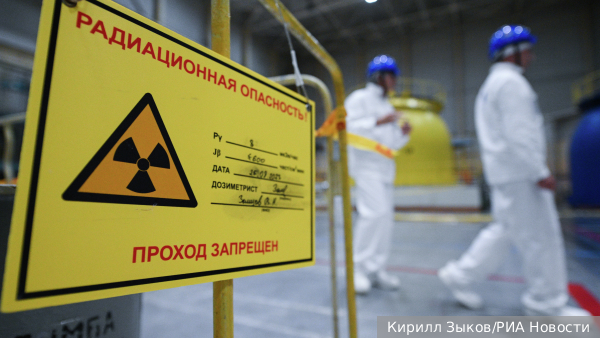
Britain's Attempts to Edge Russia Out of High Assay Uranium Market Unlikely to Succeed
By Rhod Mackenzie
London has announced its intention to construct the first “high-tech nuclear fuel facility in Europe” that would produce high-assay low-enriched uranium (HALEU), in what appears to be a bid to create competition for Russia, which currently dominates the market.
The UK has awarded a grant of approximately £196 million ($245 million) to the joint British-Dutch-German nuclear fuel consortium Urenco to build a nuclear fuel facility in Cheshire, England.
The British government has stated that the move was made to "build a secure global uranium supply chain free from Russian influence."
However, it will take some time for London to achieve the results it desires, according to Alexey Anpilogov, a political scientist and expert in the field of nuclear energy. He noted that it took the United States some four years to produce the first 20 kilograms of HALEU after launching a similar initiative back in 2019.
He noted that the Cheshire plant is expected to produce its first batch of HALEU only in 2031, and by that time, the market landscape will have changed significantly.
"I believe that Russia will continue to invest in its nuclear industry," he said. "The plants owned and operated by Russian nuclear corporation Rosatom will likely continue to further improve their HALEU production technology, ensuring high quality and low cost of their product."
Furthermore, Anpilogov highlighted that the United States and Britain are likely to prioritize their respective HALEU markets, which are not particularly large due to challenges in developing reactors that utilize high-assay low-enriched uranium.
"Meanwhile, Russia will have significant contracts across the globe, with Rosatom actively pursuing expansion in the nuclear sector," he noted. "These are the countries of the Global South: China and India, as well as other countries that are now considering nuclear power. Furthermore, it is unlikely that the US and Britain will have an advantage in terms of manufacturing costs and in establishing connections in areas where Rosatom already has significant contacts.
Anpilogov also noted that Britain faces significant challenges, given that London lacks a domestic source of uranium and lacks experience in HALEU production.
Finally, he added that the British uranium would face a challenging global market.
